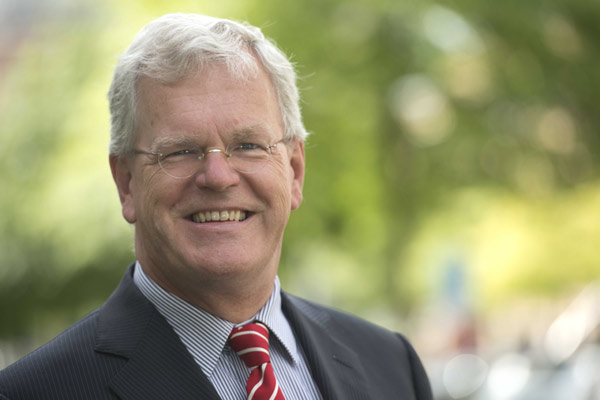 |
|
Roelof Joosten, COO of Royal FrieslandCampina. [Photo provided to China Daily] |
Likening the Chinese dairy sector to a blue sea, Joosten said that the market has seen a sea change in the past decade. While the per capita consumption of dairy products has risen ten-fold, concerns about food safety have dragged down domestic brands. This has opened new growth pastures for multinational dairy corporations, all of whom have been trying to grow market share with aggressive approaches.
According to data provided by Rabobank, a Netherlands-based bank that focuses on agriculture and food sector financing, the top five global dairy firms like Switzerland-based Nestle SA, France-based Groupe Danone and Lactalis, New Zealand-based Fonterra Cooperative Group Ltd and FrieslandCampina have all been betting big on China with infant formula.
Some Chinese brands like Yili Group, have also been investing heavily in research, safety and quality control and self-owned farm development to grow market share. Yili was already among the top 10 dairy firms in the world last year, the Rabobank report said.
Joosten, however, remains unfazed with the challenges and maintains that having a hands-on approach is essential to unlock the new growth seams in China. A frequent visitor to the country, Joosten can converse fluently in Mandarin, while his knowledge about Chinese food (especially dairy products) is immense. At the same time, Joosten admits that finding the right talent has always been a major problem in China. "We need to hire more senior managers with local expertise," he said.
"If every Chinese consumer's dairy input is as much as mine, then it will be good news for the sector," he said. The 58-year-old Harvard graduate believes that dairy products are an essential ingredient in daily nutrition, and said he consumes about 300 liters of dairy products every year.
The immediate task for FrieslandCampina is to boost consumption of dairy products in China. While a Netherlands resident consumes more than 300 liters of dairy product every year, a Chinese resident consumes just 26 liters in the same period, according to latest annual report on dairy output and consumption by Rabobank.
Though the average dairy product consumption of Chinese resident has risen from the less than 3 liter per capita every year about a decade ago, it is still lower than most other Asian countries including Japan and South Korea, where the annual dairy product consumption per capita is about 78 liters.
Changing realities
Unstable raw milk prices and higher imports of overseas raw milk ingredients have prompted dairy farmers in some regions of China to pour milk into the river to reduce losses.
Farmers are also apprehensive that prices would decline even further after the European Union lifted the quotas on milk production. The decision that became effective in April could cause global milk prices to fall further and increase global raw milk supplies by up to 4 percent.
Joosten, however, said that supply alone is not the culprit for falling prices. It is the supply and demand imbalance that is to be blamed and that needs to be fixed, he said. He cites the example of China to justify his point.
"China does not have excess milk supplies. In fact urbanization has pushed up demand for dairy products significantly, not only in terms of quantity but also in terms of quality and diversity. If the supply is not good enough to meet the demand, or the supply cannot be processed into the demanded products, then there is the so-called over supply," says Joosten.
